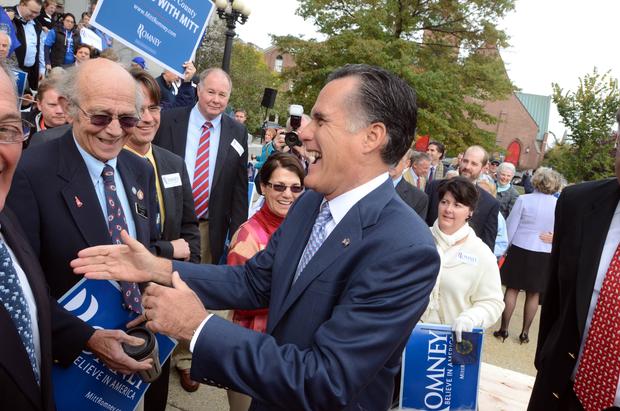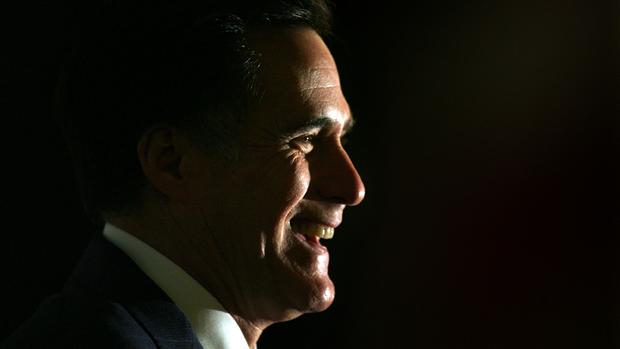Is Romney's N.H. lead insurmountable?
Before even running his first television ad, Mitt Romney finds himself with a commanding lead in New Hampshire just seven weeks away from the primary. Romney garners the support of 41 percent of likely Republican voters in a new Suffolk University/7News poll. Former House Speaker Newt Gingrich and Rep. Ron Paul are tied for a distant second with 14 percent.
Romney, however, has been here before. At this point in the 2008 election cycle, Romney led the Republican field with 33 percent, according to a RealClearPolitics average of New Hampshire polls. Former New York City Mayor Rudy Giuliani and Arizona Senator John McCain followed with 18 percent and 16 percent respectively. Over the next several weeks, McCain's support steadily rose. The Arizona senator ultimately defeated Romney by 5.5 points on the way to the GOP nomination.
Could another candidate come from behind again in 2012 to topple Romney in the Granite State? It's possible, but New Hampshire political watchers say it will be much more difficult this time around.
"I'm not saying Romney's going to win in a landslide," says David Paleologos, director of the Suffolk University Political Research Center. "What you're asking is how does someone beat him? I'm just saying it's a statistical thread the needle."
For starters, Paleologos says Romney has a higher threshold now than in 2008 -- polling in the low 40s compared to the low 30s. In addition, in a late-November 2007 Suffolk poll, 14 percent of Republican voters said they were undecided. Only 9 percent of voters currently say they haven't made up their minds. That means fewer votes are up for grabs. For a candidate to become a viable alternative to Romney, he or she would have to draw support away from other rivals. And that's where McCain had a major advantage in 2008.
"One of the things that happened late was the collapse and withdrawal of Giuliani," former New Hampshire Republican Party Chairman Fergus Cullen says. "Giuliani basically gave up on New Hampshire in the last three or four weeks. Where did that support go? Most migrated to McCain."
Today, former House Speaker Newt Gingrich is the latest candidate to vie to become the standard-bearer of the anyone-but-Romney coalition. But Cullen has his doubts.
"I no longer see any evidence that any other candidate is capable of doing what McCain did," says Cullen.
Tom Rath, a longtime New Hampshire operative and a senior adviser to the Romney campaign, agrees.
"The biggest difference is the person in second place is not John McCain," Rath says. "John McCain had a very unique, special relationship with this electorate. There's no McCain-like personality in this race."
Yet Rath says the campaign is taking nothing for granted - and that's why the time is right to hit the airwaves.
"We had these polling numbers the last time, and we'd been on the air since mid-March. We have not run a single TV ad to get to where we are," says Rath.
And now that the first ad is up?
"I don't think New Hampshire viewers are going to wonder where we are between now and the first of the year," he said.
Full CBS News coverage: Mitt Romney

